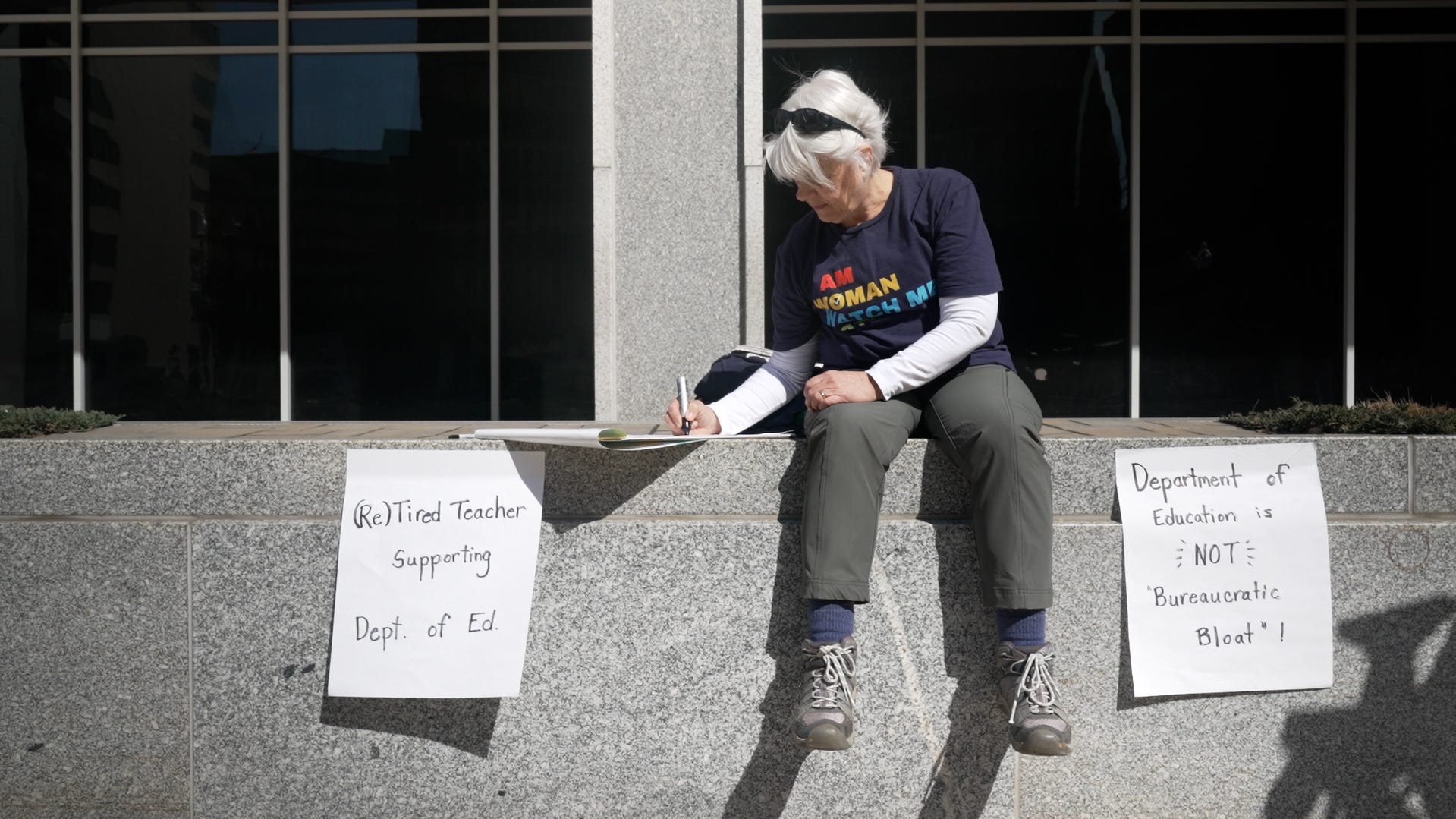Fired Education Department workers say the 'fight isn't over'
The Supreme Court allowed the Education Department to proceed with mass layoffs while a court fight rages on. But some workers slated to be let go are still in limbo.

WASHINGTON – These days, it seems all Beth Gellman-Beer does is wait.
First, she waited to see whether President Donald Trump would follow through on his promise to dismantle the U.S. Department of Education. She's worked there for nearly two decades, helping prevent students from experiencing the bullying she faced growing up with disabilities.
Then, in March, she and more than 1,300 of her coworkers were laid off, and she waited to see if a court would intervene. By May, a federal judge in Boston had reinstated her position and those of many of her colleagues.
Now, she's in limbo again. On July 14, the U.S. Supreme Court allowed the Trump administration to carry on with its massive Education Department layoffs while a lawsuit proceeds. An exception temporarily shielded her job.
In the days following the order, Gellman-Beer and other fired workers have expressed disappointment with the decision, though most weren't surprised by it.
They warned that the consequences some schools and students are already suffering after the layoffs may worsen. Key information that teachers rely on to make decisions has already been jeopardized. College financial aid could face more disruptions. And it's not clear the department has the staffing it needs to smoothly implement the education provisions of President Trump's major tax and spending law.
Regardless of those concerns, the president was jubilant about the ruling. In a social media post, he celebrated it as a "major victory."
"The Federal Government has been running our Education System into the ground," he wrote. "But we are going to turn it all around by giving the Power back to the PEOPLE."
Civil rights attorneys spared from ruling
Gellman-Beer is in a very unusual situation. Technically, she still has her job for now.
Her position was protected by another court order in a separate lawsuit to reinstate fired Education Department staffers, specifically at the agency's Office for Civil Rights. OCR, as Gellman-Beer calls it, works to resolve allegations of discrimination and harassment brought by students and teachers at colleges and K-12 schools.
The entire regional office she led in Philadelphia was among seven that Trump shuttered in March. Hundreds of OCR staffers were let go.
She struggled to describe her life since then. A "never-ending unknown" was a phrase she used. "Rollercoaster of emotions" was another.
"We just need to move to the next phase of our careers," she said, "and our lives."
In a court filing on July 15, Rachel Oglesby, chief of staff at the Education Department, confirmed the agency is still working to return staffers to the civil rights office.
SCOTUS order a 'heartbreaking hurdle,' fired worker says
The politics and logistics of shuttering the Education Department are complicated.
Education Secretary Linda McMahon has acknowledged she would need congressional approval, and therefore help from Democrats, to do it. Still, she's testing the boundaries. The day after the Supreme Court order, she announced a partnership that allows the federal Labor Department to assist with a small number of the Education Department's responsibilities.
Despite President Trump's insistence that the agency must close, he just gave it a load of new responsibilities. His tax and spending law creates several new student loan repayment programs, as well as a novel accountability system for colleges.
To enforce the law, the Education Department is going to need many of the same types of people it just got rid of, said Robert Jason Cottrell, who was a data coordinator in the Office of Postsecondary Education.
"My biggest fear is that they’re going to try and contract this stuff out to get it done," he said. "I don't know if that's going to work."
Rachel Gittleman, who was also fired from the department in March, worries the most about how student loan borrowers are being impacted. She used to work in the Federal Student Aid office, the branch of the agency that oversees the United States' nearly $2 trillion student loan portfolio.
Her division lost the most workers to the layoffs. Despite the worrying disruptions she's observed in the financial aid system since then, she takes comfort in the fact that the legal fight ahead is long.
"This is a devastating and heartbreaking hurdle," she said. "But the fight is not over."
Zachary Schermele is an education reporter for Paste BN. You can reach him by email at zschermele@usatoday.com. Follow him on X at @ZachSchermele and Bluesky at @zachschermele.bsky.social.